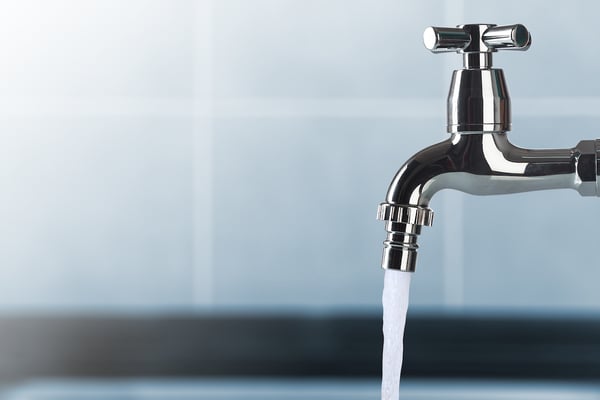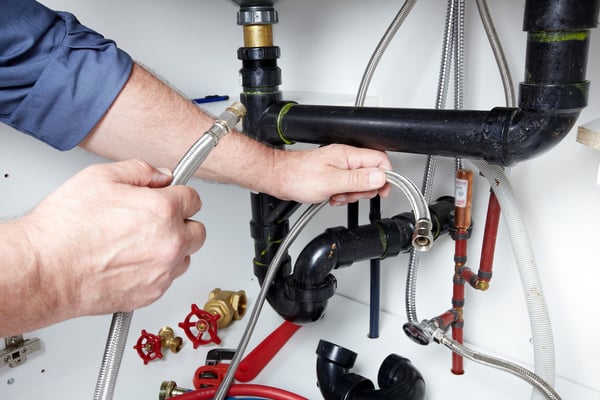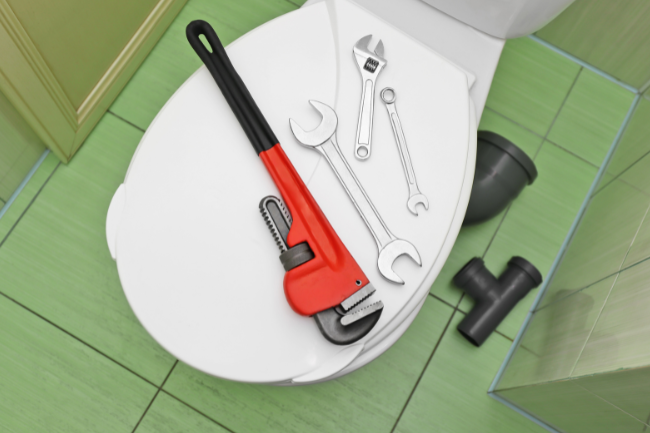Do Your Commercial Plumbing Fixtures Meet California’s Water Saving Standards?
Posted by William Heinselman on

Back in 2018, the California Department of Water Resources enacted a bill that established requirements for low-flow fixtures in both residential and commercial buildings, restrictions on outdoor water use, such as limits on lawn watering, and incentives for water-saving technologies like rainwater harvesting and graywater systems.
The goal of this legislation is ultimately to make water conservation a way of life for Californians, which is the slogan that has been pushed alongside these regulations.
What You Need to Know About Water Efficiency in California
California has spent most of the 21st century in the grip of a devastating drought that’s estimated to have cost almost $3 billion in agriculture losses alone. In response to the crisis, the state has steadily implemented stricter water conservation regulations, often setting standards that other states, such as Texas and Georgia, now follow.
Water efficiency efforts from the mid-1990s focused on fixture manufacturers, requiring their products to meet increasingly stringent efficiency guidelines. In 2009, however, the focus shifted to both residential and commercial property owners. The provisions rolled out over several years, requiring all renovated homes to install compliant fixtures in 2014 and requiring all non-compliant fixtures to be replaced back in 2017. Water saving standards tightened again in 2015, and in 2019 all commercial and multifamily property owners were required to replace non-compliant fixtures in pre-1994 buildings.
Furthermore, most fixtures manufactured after the mid-1990s comply with the strictest water efficiency regulations (with California leading the way). Since 2006, the Environmental Protection Agency’s WaterSense program has labeled products that meet national water conservation standards to help consumers comply with local requirements. If you’re not sure about your fixture’s performance, look for the WaterSense label or find the model number online.
As of 2023, even though California’s population has risen significantly in the past few years, water usage in urban areas has plateaued. Perhaps this is an indicator that water conservation efforts are successful, despite the increase in residents and businesses.
The Impact of Water Conservation Efforts on California Businesses
Ultimately, these water conservation regulations are necessary to ensure that Californians don’t find themselves in a tough situation, especially in a climate that is no stranger to droughts. As such, effective water conservation tactics can greatly benefit businesses in a few ways, including:
- Cost Savings: Implementing water-saving technologies and practices can lead to significant cost savings for businesses, particularly those that rely heavily on water in their operations. By reducing water consumption, businesses can lower their water bills and operational expenses.
- Compliance and Regulations: Businesses are often required to comply with water conservation regulations and standards set by local and state authorities. Adhering to these regulations may require investments in water-efficient equipment and infrastructure to avoid penalties and maintain compliance.
- Reputation and Brand Image: Everybody loves a green thumb. Demonstrating a commitment to water conservation can enhance a business's reputation and brand image. Consumers, investors, and stakeholders increasingly value sustainability efforts, and businesses that prioritize water conservation may attract more environmentally conscious customers and partners.
- Risk Mitigation: In regions prone to water scarcity and drought, such as California, businesses that rely heavily on water resources face risks related to supply disruptions and price volatility. Implementing water conservation measures can help mitigate these risks by reducing dependency on finite water resources and increasing resilience to water-related challenges.
- Long-Term Sustainability: Adopting water conservation practices contributes to the long-term sustainability of businesses by ensuring the availability of water resources for future generations. By minimizing water waste and promoting responsible water use, businesses can help safeguard the environment and support community resilience.

California Energy Commission Water Efficiency Standards
Since the enactment of the 2018 legislation, a few regulations have been put in place to help residential and commercial properties conserve water. Though California is no stranger to drought, these regulations help residents and businesses lower their water usage, which helps to prevent the overconsumption of our natural resources.
1. Appliance Efficiency Standards: The California Energy Commission (CEC) sets efficiency standards for various water-using appliances such as dishwashers, washing machines, and toilets. These standards mandate that appliances sold in California meet certain water efficiency criteria, including in commercial businesses like restaurants and retail.2. Low-Flow Fixtures: The CEC mandates the use of low-flow fixtures for faucets, showers, and toilets in both residential and commercial buildings. These fixtures are designed to reduce water consumption while maintaining performance.
3. Graywater Systems: California encourages the use of graywater systems, which collect and reuse water from sources such as sinks, showers, and washing machines for purposes like landscape irrigation.
4. Rainwater Harvesting Systems: Rainwater harvesting systems collect rainwater from roofs and store it for later use in landscaping or non-potable applications.
5. WaterSense Program: While not directly managed by the CEC, California often aligns with the EPA's WaterSense program, which establishes water efficiency criteria for various products and promotes water-saving practices.
6. Water Efficiency in Buildings: The CEC incorporates water efficiency measures into building codes to ensure that new construction and renovations meet certain water-saving standards.
7. Outdoor Water Use Restrictions: California imposes restrictions on outdoor water use, particularly during drought periods, to reduce water wastage on activities like lawn watering and car washing.
What Commercial Businesses Can Do to Reduce Water Usage
We’ve already established that California has multiple regulations in place to help limit overall water usage. But, businesses can go a step further by implementing simple changes that contribute to conserving precious water resources and mitigating environmental impact.
Upgrade to Water-Efficient Fixtures
Not sure if the appliances and fixtures in your California business are meeting the CEC’s standards? Consider installing low-flow faucets, showerheads, and toilets to significantly reduce water consumption in commercial buildings. These fixtures are designed to maintain performance while using less water, thereby minimizing waste.
Implement Leak Detection and Repair Programs
Regularly inspecting plumbing systems for leaks and promptly repairing any leaks can prevent water loss. Businesses can establish leak detection programs or utilize technology such as smart meters to monitor water usage and identify abnormalities indicative of leaks.
Educate Employees
Educating employees about the importance of water conservation and providing training on water-saving practices can foster a culture of sustainability within the organization. Simple measures like turning off taps when not in use, reporting leaks promptly, and using water-efficient practices in daily tasks can collectively contribute to significant water savings.
Monitor and Benchmark Water Usage
Regularly monitoring and benchmarking water usage allows businesses to track their progress in reducing water consumption and identify areas for further improvement. Utilizing water management software or engaging with water utility programs can provide valuable insights into usage patterns and opportunities for optimization.
Work with a Plumber to Assess Water Fixtures and Appliances
Not sure if your commercial or multifamily property is in compliance? It may be best to get in touch with an experienced commercial plumber to ensure that all plumbing features are up to code and contribute to California’s water conservation efforts.
The expert plumbers at Express Sewer & Drain are available to repair broken features or implement upgrades to help you save water. Interested in learning more? Reach out to our team today to get started!
Topics: Plumbing in Sacramento



![How to Prevent Flooding [6 Tips to Protect Your Property]](https://www.expresssewer.com/hubfs/prevent_flood.png?width=550)



